Why A Mold Inspection?
Are you confused when it comes to dealing with mold? Why do you need a mold inspection?
If you are a Home Owner, Landlord, Real Estate Broker/Investor, Strata Manager or Contractor then you need pay attention to:
Mold Insight
- What to do when you face a mold issue
- How to fix a mold problem
- How to prevent mold from coming back
Mold Problems For Home Owners
As a homeowner, you may not think about mold on a daily basis, or about how a small mold issue can become a major infestation later.
For example, a slow drip under your bathroom sink may not signal warning bells for you, until a month later when the vanity is water damaged and mold has taken over.
If there is high humidity, like this photo, you may not see the signs of mold unless you clean behind the furniture,
The fact is, preventing or fixing small household repairs is not always a priority to many people as they are busy living their lives.
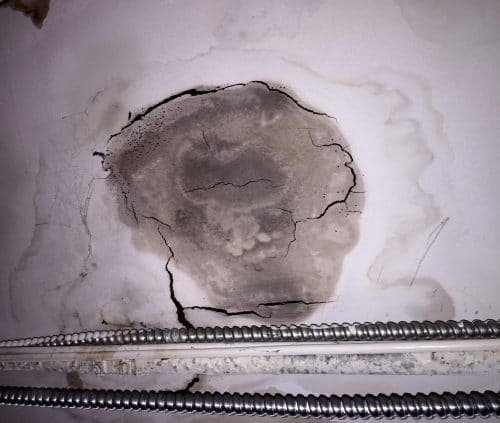
When should Homeowners call for a mold inspection?
Before you take on any major renovations, it makes sense to check the home of any leaks, existing water damage or mold.
If anything suspicious (a strong mildew smell, a leak, discolouration on the wall, mold on furniture or ceiling for example) is found, it can be rectified prior to the renovation project. This can save you a lot of time and money.
With the arrival of a newborn, you want to make sure that mold is not an issue.
Infants do not have developed immune systems yet, so they are susceptible to the adverse health effects of mold. It makes sense to be sure that the air quality in your home is clean and your home is safe.
Of course, if you just happen to notice any signs of existing water damage or what appears to be mold, you want to have the home inspected, followed by mold removal, and all contents cleaned or discarded.
Mold Problems For Landlords
If you are a landlord, you likely do not live in your rental homes, so how do you know the condition of your properties on a daily basis?
What if there is water damage from a leak as noted in this photo?
You will have to figure out the source of the issue and then have it properly dealt with by a remediation contractor.
This will end up costing you!
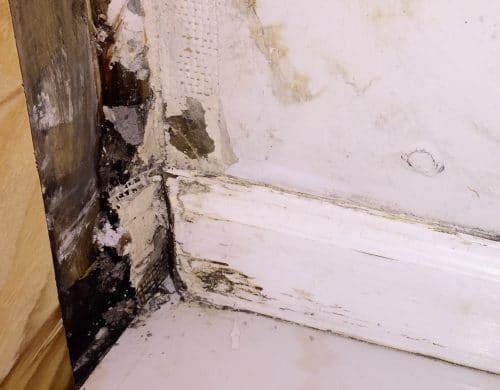
When is the best time for a landlord to get a mold inspection?
Just before you rent the home/property. You, as the landlord must ensure that the properties you rent out are safe to occupy.
With mold, this means your rental properties need to be clean and dry. It is best to be proactive. This will help you prevent problems with tenants once they occupy the home.
I know through experience that not all reported mold issues are valid, and this can be an unnecessary hassle for you – especially when there is no real evidence other than allergies (which could be attributed to a number of different things)
Regardless, when a tenant reports a mold issue, you must take quick action to verify if such concerns are legitimate or not. This is where a mold inspector can help.
As a part of the landlord/tenant agreement, you should clearly detail, in writing your expectations of your tenant.
This includes full disclosure of any mold or water related issues, as well as your expectations for preventing mold.
For example, you can ask the tenants to use the exhaust fan(s) every time they use the shower/bath and cook.
Here is a link that will give you a better understanding regarding your rights with regards to mold when owning a property.
Mold Problems for Real Estate Brokers/Investors
I know from experience that a set back caused by real or suspected mold can be frustrating for you as a real estate professional.
Tight timelines for subject removal and closing dates are stressful enough, without the delay of a mold problem.
As a property investor, you need to know if your investment property has any mold related issues, especially when the building has been vacant for a number of months.
This photo shows what can happen to a vacant property from a roof leak.
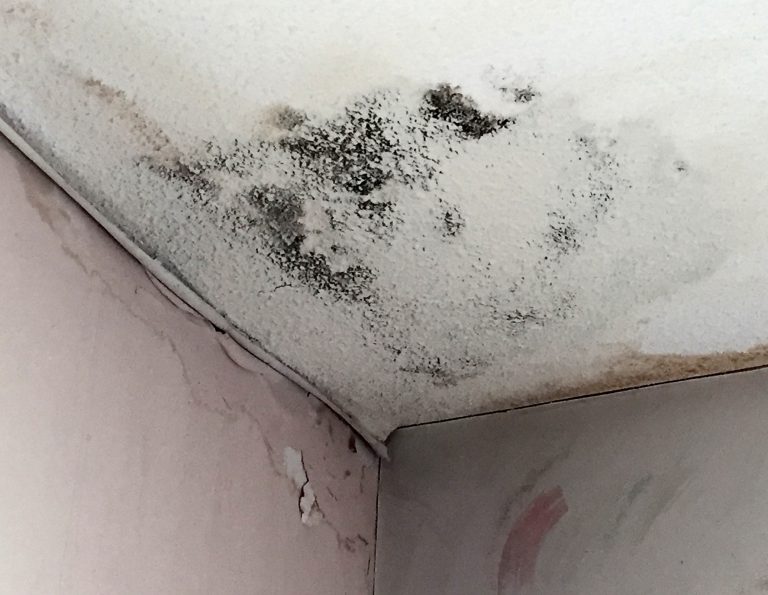
How can Real Estate professionals/Investors benefit from a mold inspection?
Home buyers want to know that the home you are helping them buy is going to be safe, comfortable and damage free without costing them a bunch of money from the get go.
At the same time, your clients want to sell their homes quickly and easily without any of the unnecessary delays caused by mold.
To alleviate any suspicions resulting from floods, leaks or humidity issues, listing agents can help their clients by recommending a mold inspection prior to listing the home.
On the flip side, prior to submitting an offer, home buyers should check the history of a home to find out whether or not mold has been a problem. If so, this is the time to call for a mold inspector.
Fortunately real estate professionals/investors can find out how to keep their deals from going sideways when a mold issue comes up during the real estate transaction. Call for details.
Mold Problems for Strata/Property Managers
Troubleshooting mold related issues is just another part of the job for strata managers.
As a strata manager, mold problems can and will affect your overall budget planning for the entire strata or a single resident.
This is especially true when you are faced with the implications on how to address a mold problem during a real estate transaction.
Being a property manager, with several buildings under your maintenance program, you will come up against a host of water related issues that will escalate into mold problems over a given year.
When should strata/property managers rely on mold a mold inspector?
Recently, a strata manager called to investigate mold related issues from a worried seller because a home inspector discovered “suspected mold” inside the attic of their townhouse.
In order to remove subjects for the sale of the unit, the mold issue had to be (a) verified and (b) dealt with.
The strata manager called me in for an inspection, report and advice. They needed to understand and deal a number of problems that led to mold growth found on the attic sheathing.
With larger strata properties, like condos, strata managers will need to deal with the presence of water damage and or mold from floods, leaks or water ingress.
Mold inspectors can come in, identify the problem(s) and provide an action plan for the remediation contractor to follow.
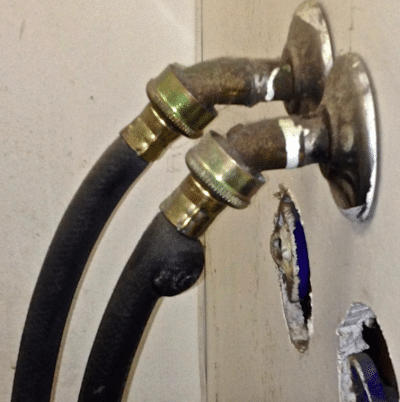
Property managers, much like strata managers have a lot on their plate as well.
The main issues that come up involve leaks, floods and the verification of mold through either air quality testing & surface testing.
One of the most preventable issues affecting condos is dealing with leaks from outdated rubber washer hoses.
Property and strata managers need ensure that all condo owners are replacing their rubber washer hoses with steel braided hoses to prevent expensive leaks and insurance claims.
Mold Problems For Contractors
Contractors frequently call when they run into mold problems, especially during a bathroom or kitchen renovation project.
Often, the project must stop until the mold source has been identified, and eventually dealt with.
General contractors need to know the warning signs of mold, as they are often the first ones on scene to discover it.
Contractors often juggle several projects at once. Setbacks like time delays can be a serious pain; so calling in a mold inspector to verify or locate a mold source in short order is essential.
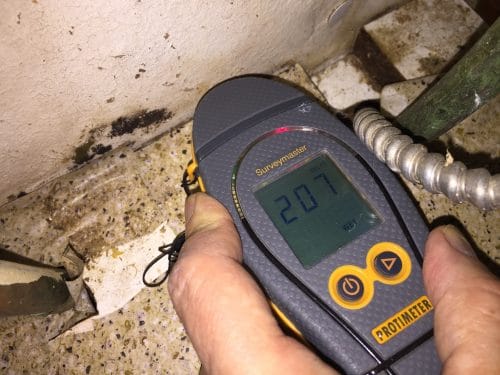
You need to know to safely contain a mold problem without accidentally cross contaminating the home with hundreds of thousands of mold spores.
This is necessary for the contractor to maintain safe air quality and to keep on schedule with their project.
Contractors often want to help to figure out where leaks are coming from, with the use of our moisture meters and Infrared cameras.
Once the source is discovered, contractors can call a mold removal company to fix the problem and can get back to work again.




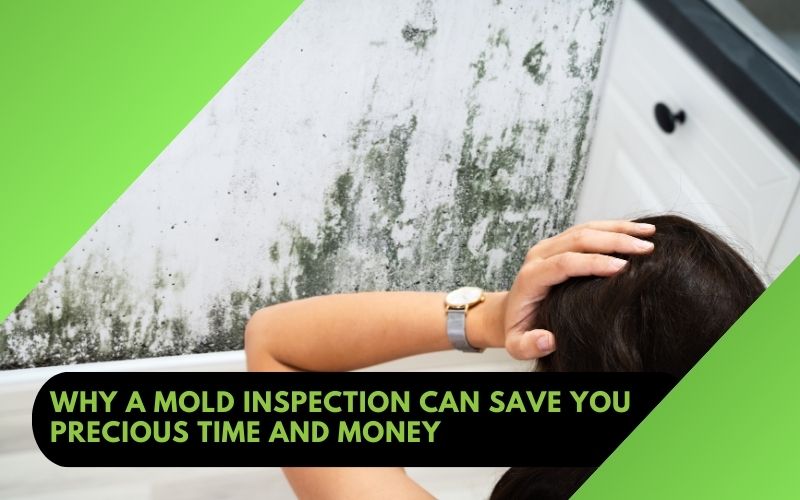


Comments are closed